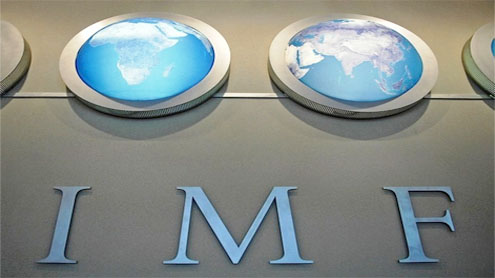
With electioneering in full swing, people’s attention is focused on the political transition that lies ahead in Pakistan. But the fate of the economy is as consequential for the country as the approaching election.
A precarious economy marked by widening internal and external imbalances has heightened the risk of a financial crisis erupting right in the middle of the transition and before a new government assumes power.This urges the need for responsible economic stewardship during the brief tenure of the interim government. Although the caretaker government’s principal responsibility will be supervising free and fair elections, it will also have to keep a watchful eye on a deteriorating economy and take measures to prevent an economic breakdown.
The economy will need to be prudently managed in a period where the important (holding credible elections) and the urgent (averting economic crisis) will compete for attention.Virtually all macroeconomic indicators point to significant worsening of the economy: low or falling growth, rising budget deficit, high inflation, declining revenue collection, growing losses in public sector enterprises, record government borrowing from the State Bank and commercial banks, plummeting domestic and foreign investment, and a deeply troubled energy sector that continues to strain government resources. Moreover, the government’s fiscal profligacy ahead of elections has further weakened public finances.
It is the country’s perilious external position that can trigger a crisis. Exports have been stagnating and foreign direct investment has slipped to an all time low. In the first seven months of this fiscal year FDI was just $525 million. While the current account gap is not as large as last year’s and remittances from overseas Pakistanis remain robust (around $13 billion last year) but this is not enough to meet the country’s external financing requirements in the face of depleting foreign exchange reserves.
The present level of reserves held by the State Bank is around $8.1 billion, which cover about two month’s of imports. This will drop by another $400 million this month when another payment is made to the International Monetary Fund. This fiscal year reserves have steadily eroded at around $500 million a month. External inflows have tapered off while repayments have had to be made to the IMF on the $11 billion loan contracted in 2008.
As the reserve cushion has begun to erode so has confidence. This has put rising pressure on the balance of payments and the rupee, whose value has sunk to a historic low against the dollar.With more repayments due to the IMF, foreign exchange reserves could dwindle to a dangerous level by this fiscal year’s end. Between now and end-June, Pakistan needs to pay $1.5 billion to the Fund and another $1.2 billion to other lenders. Reserves will, therefore, fall much below $ 6 billion in the absence of any foreign inflows.
There are two aspects to the country’s weakening position on the external account. One, drawdowns of reserves could produce a cash flow crisis, when the country will simply not have enough foreign exchange to meet its external financing gap. A balance of payments crisis would then follow.But before this happens a second, more likely scenario might materialise. As reserves continue to dwindle, this could spark panic in the market. Confidence could start evaporating when the market perceives that the country won’t be able to service its foreign obligations.When panic sets in people start converting rupees into dollars as a hedge against risk. This pressure can prompt the SBP to run down reserves very quickly. And if the central bank does not use its reserves, the rupee’s value plunges.This is not an unfamiliar scenario. It resembles what happened in the 2008-09 balance of payments crisis, which was only resolved by emergency financing from the IMF.
All of this creates the imperative to skillfully manage the economy in a politically challenging environment. The interim administration may, in fact, have to take important decisions – in consultation with major political parties – to prevent the economy from going off the cliff. Such actions in the fiscal and monetary sphere and energy sector would also help the country transition into a new Fund programme, which is unavoidable because without substantial inflows the country would be pushed towards default on its external obligations.The caretaker government will, therefore, need to take care of more than an election – act to save the country from economic collapse. – KahleejNews











